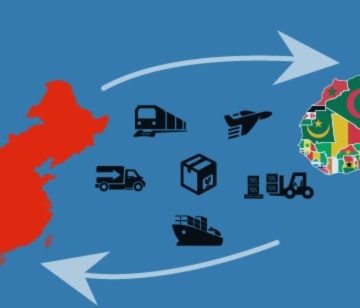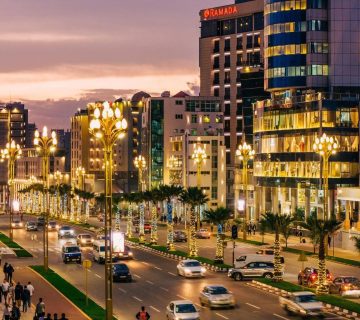The spread of COVID-19 is increasing in the Horn of Africa, pointing to fears of a health sector collapse, and socio-economic and political devastation. Given the region’s overall vulnerability, weak national health systems, and poor infrastructural capacity, the impact of the pandemic will be significant. While declaring the outbreak of COVID-19 a global pandemic, the Director-General of the World Health Organization, Dr. Tedros Ghebreyesus, warned that African countries to “prepare for the worst”.
In order to cope with the pandemic, the region’s governments will have to take radical and decisive action that focuses on preventing and minimizing the spread of the disease while maximizing chances of its containment. Besides enhancing public health hygiene and ensuring isolation of confirmed and suspected cases, radical approaches such as instituting total lockdowns and declaring state of emergencies will help contain the disease. Already, good lessons can be learned from countries such China and South Korea, which have recently reported a drop in new cases.
Complex Economic and Political Challenges
Countries in the Horn of Africa; Djibouti, Eritrea, Ethiopia, Somalia, Kenya, Uganda, Sudan and South Sudan, had begun to feel the impact of COVID-19 long before the first case was confirmed in the region. With most countries relying on bilateral trade with China, the economies began to feel the shock by mid-February, following lockdowns in China as well as limited travel between the two regions. The International Monetary Fund (IMF) warned that countries in the Sub Saharan region, in general, were set to undergo an economic slowdown resulting from the impact of COVID-19 in China. Countries in the Horn of Africa stand at the greater risks, owing to their weak and externally dependent economies. As IMF projected, high impacts would be felt in 21 resource-intensive African countries, including South Sudan, Eritrea and Ethiopia, whose economies depend largely on exports of raw mineral resources and oils to the Chinese Markets. In Kenya, a survey conducted by Kenya Private Sector Alliance (KEPSA) to evaluate the impact of COVID-19 on her economy, revealed that between January and February 2020, the Country’s imports from China had reduced by 36.6 per cent and exports of agricultural products such as flowers, avocados, and tea were falling rapidly.
With the virus increasingly spreading in the region, businesses are set to throttle, infrastructural projects will stall, and supply chains will be undercut as small and medium-size businesses struggle to diversify or find alternative commodity suppliers. Employees also face imminent job losses as companies stop or scale down their operations. With a majority of workforce in the region employed in the informal sectors or in non-digitalized work environments, lacking viable alternative working arrangements such as working from home or the use of technology to execute work-related duties, the region as a whole risks plunging into a complex humanitarian crisis as most populations will be unable to fend for themselves. In September 2019, Intergovernmental Authority on Development (IGAD), a regional body, reported that 27 million people were facing acute food shortages, with 20 million others risking to fall into the same category if humanitarian assistance was not immediately mobilised. Coupled with the effects of protracted conflicts and failing governance systems, an outbreak of COVID-19 in the region will aggravate human suffering, especially in South Sudan, Somalia and Sudan.
Similarly, the outbreak of the disease in the Horn of Africa heralds political crises in many countries. Elections are scheduled in Ethiopia and Somalia in August and December 2020, respectively. There is a likelihood that the ongoing spread of COVID-19 could hamper preparations for these elections as these governments shift their attention to combating the disease. This may occasion delay of the polls. While doing this might be necessary in the face of a ravaging disease, such steps bear the potential pitfalls of causing an escalation of political crisis and compounding political confrontations.
In Ethiopia, for instance, political campaigns for upcoming parliamentary elections have continued unabated, even as the number of confirmed cases of COVID-19 continues to rise. Prime Minister Abiy Ahmed has ordered a shutdown of learning institutions and issued bans on public events. With Abiy seeking to balance a precarious political environment tempered by ethnic tensions, continued spread of COVID-19 even for months might cause a political impasse in Ethiopia, in the event that elections are postponed.
Somalia is also in another political crucible. The Federal Government of Somalia (FGS) in As Mogadishu grapples with mending relations with the outlaying Federal Member States, there is need to pass a new constitution, formulate new electoral regulation based on one-person-one-vote system, kick start voter registration and fund polls. There is also a growing dissatisfaction from the opposition regarding the governments control over the entire electoral process. These, and many other issues, may amplify the political temperatures in Somalia, should President Mohammed Abdullahi choose to suspend elections in the wake of COVID-19.
Coping with the pandemic
The outbreak of COVID-19 calls for political unity to enable governments to respond better to the challenge. As a way of calming down the masses and eliminating anxiety, political leaders should abandon parochial party politics and combine efforts in battling the pandemic. In a rare show of political unity, President Cyril Ramaphosa, and opposition leaders, including Julius Malema of Economic Freedom Fighter (EEF) and John Steenhuisen of Democratic Alliance (DA), joined hands in consolidating national response to COVID-19 outbreak.
The region’s governments can also cope better with the increasing outbreak of COVID-19 by activating radical measures such as suspending flights from high-risk countries and enhancing surveillance and testing at the points of entry. Should the numbers continue to rise, tougher measures such as instituting total lockdowns and declaration of state of emergencies in various cities or at national level will help to reduce the chances of transmission. Such steps will have high short-term socio-economic and political effects but will avail in curtailing the widespread of the infectious disease and by that cushion from long-term impacts. Taking effective decisive actions in the early stages of the spread can save the vast majority of the populations who are beset with abject poverty and other human insecurities.
Otieno O. Joel is a Research Assistant at the HORN Institute
Photo: Image showing health workers ready for deployment in Kenya (Photo Credit: Quartz Africa)



